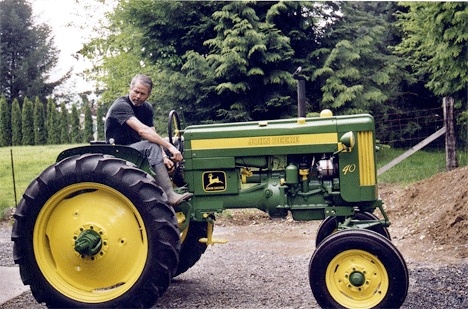Mike Crowell has nothing to hide. Neither his body nor the symptoms of Parkinson’s disease.
The Greenbank man takes on the taxing task of posing as an artist’s model for students at Skagit Valley College.
Holding a pose for several hours while budding artists sketch his physique would be hard enough for a healthy adult.
But for Crowell, each sitting is a challenge as he has to control trembles and muscle stiffness caused by Parkinson’s disease.
“As an artist’s model you have to stand still,” Crowell said. “It’s kind of natural. It’s not a physical activity, but it’s challenging.
“I do it to let people with Parkinson’s disease know they can do things,” he said.
Crowell donates half of his fees collected for his work as a model to the Northwest Parkinson’s Foundation. The foundation provides resources, education and specialty care to those touched by Parkinson’s — patients, caregivers and family.
An estimated 36,000 Parkinson’s patients live in Washington state alone.
Crowell refuses to allow Parkinson’s disease to dictate his life. Besides his work for the artists, he also volunteers at the M-Bar-C Ranch.
“It all takes me longer than it would other people. I don’t have the strength or durability, but I get it done,” he said.
Each Wednesday he also bowls on a team.
“I have probably the worst record in the league,” Crowell said.
He bowls for the fun of it and the exercise. But having a competitive spirit sometimes gets the better of him. Parkinson’s gets in the way of a winning game.
“Usually it doesn’t bother me,” he said. “But the other day I rolled six gutter balls in a row.
I excused myself and went home.”
The reality of Parkinson’s is that the disease does limit patients in many areas of life. It was tough for Crowell when he realized that Parkinson’s would strip him of some of his favorite things.
“I was a motorcycle enthusiast. I had to give it up a couple of years ago,” he said.
He may have said goodbye to his bike, but the love of roaring engines never died.
It’s his dream to ride a tractor from Whidbey Island to his hometown in California like Richard Farnsworth in the 1999 movie
“The Straight Story.”
With the road adventure he hopes to raise money for the cure.
“I want to drive a tractor to California. I even bought an old one. But I could never get it to run well enough for the trip,” he said.
“I have even talked to the highway patrol in Oregon and California and gotten the OK,” he added.
All that’s missing is a working set of wheels. Maybe some day, a tractor maker will donate one, Crowell hopes.
But so far, no luck.
“My name is not Michael J. Fox. My name is Michael. No association. I’m not a big enough name,” he said.
But the dream lives on and one day it will all come together.
“My positive attitude keeps me going,” he said.
This mindset has earned Crowell the respect of his friends and many in the Parkinson’s community.
“I have been astounded and humbled by the perseverance I’ve seen from many of those touched by Parkinson’s in our community,” said Bill Bell, executive director of the Northwest Parkinson’s Foundation. “Mike is a perfect example of will and drive overcoming the symptoms of the disease.”
Crowell was diagnosed in 1995.
“I was at a friend’s house. The husband is a psychiatrist, the wife is a psychiatric nurse. She handed me a beer. I held it for a while, then dropped it,” Crowell recalled.
“I dropped two that night,” he said.
After the incident, he went to a neurologist who diagnosed the disease. He got a second opinion, but neurologist number two didn’t have better news for
Crowell.
From then on, life changed drastically. Crowell takes a colorful assortment of pills every day to control the physical symptoms of the disease.
“I take five different drugs five times a day,” Crowell said.
“I have a beeper on my watch so I know when to take them,” he said showing off the small pill box that he takes with him everywhere.
Parkinson’s disease is characterized by muscle rigidity, tremors, a slowing of physical movement and, in extreme cases, a loss of physical movement.
Drug treatment helps the symptoms, but ultimately there is no cure.
The primary symptoms are the results of decreased stimulation of the motor cortex in the brain by the basal ganglia, normally caused by the insufficient formation and action of dopamine.
Besides the physical symptoms — the shaking and jerky movements — that most people associate with the disease, it also takes a toll on the psyche of patients.
“Parkinson’s affects you psychologically. There is anxiety, depression — things people don’t see,” Crowell said.
Secondary symptoms also include high-level cognitive dysfunction and subtle language problems.
As most touched by Parkinson’s, Crowell hopes a cure can be found in his lifetime.
But he knows that a cure won’t materialize out of thin air. To do his part, he supports the Northwest Parkinson’s Foundation and volunteered for studies soon after the diagnosis.
“I thought if I contribute early when I’m not bad, it may help me later when I need it,” Crowell said.
He also hopes another thing will happen before the disease worsens.
“I hope I’ll get to take that tractor trip someday,” he said.


